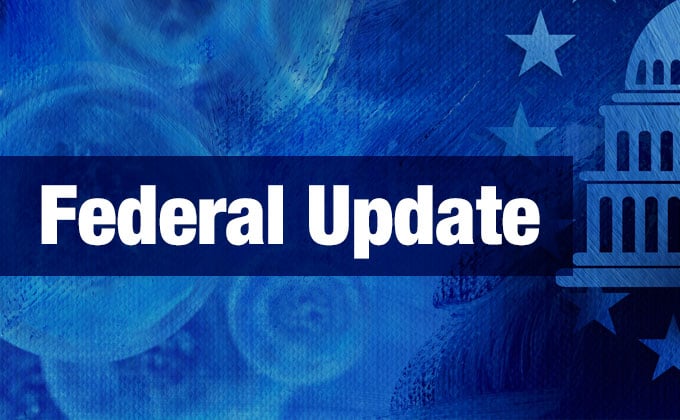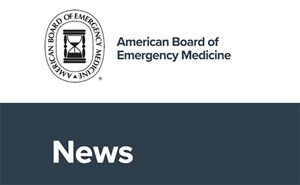Update: Here's another quick summary by ACEP's advocacy team.
During the last several weeks, Congress has worked on a year-end legislative package to fund the federal government and provide additional COVID-19 stimulus. Negotiating these critical issues in the midst of a pandemic was less than ideal; however, ACEP advocated tirelessly to prioritize and protect emergency medicine. Hanging in the balance were three issues of vital significance to emergency physicians. We are providing the latest updates below, but please note that our advocacy for our members will continue because the upcoming regulatory phase provides more opportunities to shape these policies.
- 2021 Medicare Cuts
- Surprise Medical Billing
- COVID & Other Health Care Provisions
Urgent Action on Impending Medicare Cuts
Emergency physicians were facing a potential 6 percent cut in Medicare reimbursements starting Jan. 1. This new package lessens the impact dramatically:
- ACEP was able to eliminate two-thirds or more of the anticipated reimbursement cuts. Originally set at 6 percent, you will now receive a cut of 2 percent, at worst—depending on code mix, some EM physicians could even do better. This is the result of years of work ACEP has done to increase the value of certain EM codes.
- ACEP has also protected an additional 2 percent of your Medicare reimbursement for the next three months by delaying the sequester.
Pushing Back Against Damaging Surprise Medical Billing Legislation
ACEP has been fighting this surprise billing battle for more than two years, and we are pleased this final bill:
- Includes an accessible independent dispute resolution (IDR) to help you more fairly resolve out-of-network disputes with insurers;
- Limits deductibles for out-of-network emergency care to be no higher than in-network;
- Includes a reasonable payment standard; and,
- Requires insurers to print a policyholder’s deductibles on their insurance card, a concept ACEP conceived and requested of Congress at the start of federal efforts to legislate on surprise billing.
This final bill comes a long way from where we were in June 2019 when we were facing legislative proposals that benchmarked ALL out-of-network reimbursement to the insurer’s median in-network rate for that area. While the insurer’s median in-network will be considered as part of the IDR process, it will be set based on the amount it was in January 2019 with annual increases for inflation—preventing insurers from gaming payments by dropping their higher-cost contracts.
ACEP recognizes the concerning provision in the legislation that sets a 90-day cooling off period that slows down access to IDR. We pushed hard for its elimination, and while it wasn’t removed, we secured several improvements in the bill as a result of our advocacy this past week. Look for more to come related to the surprise billing portions of this bill and join us for a special edition of the Capital (30) Minutes on Wednesday, January 6, 2021 at 1pm CT/2pm ET where we’ll dig deeper into this issue and answer your questions live.
Pushing for COVID-19 Physician Protections
ACEP has been lobbying for additional protections to secure both your safety and your livelihood in the face of the ongoing and worsening pandemic. This bill includes several important provisions:
- An additional $3 billion for the Provider Relief Fund;
- Essential funding for vaccine procurement and distribution, providing roughly $20 billion to the Biomedical Advanced Research and Development Authority (BARDA) for procurement of vaccines and therapeutics, nearly $9 billion to the Centers for Disease Control and Prevention (CDC) and states for vaccine distribution and more than $3 billion for the strategic national stockpile; and,
- More than $22 billion sent directly to states for testing, tracing and COVID mitigation programs.
But Wait, There’s More!
This 5,000-page legislative package contains many additional health care-related provisions we will be dissecting in future communications but here are a few highlights:
- An ACEP-supported provision will allow rural and critical access hospitals to voluntarily convert to newly-established rural emergency hospitals focused on providing ED services and one-day observation care with appropriate transfer protocols established for acute care inpatient services. This new hospital designation would receive a higher reimbursement rate set at 105 percent of the Hospital Outpatient Prospective Payment System (HOPPS) and additional subsidies.
- 1,000 new physician GME slots will be created starting in 2023, with preference going to hospitals in rural and underserved areas. These slots will be equally weighted between primary care and specialty.
- A three-year extension of the Geographic Practice Cost Index (GPCI) work floor.





